Millie Walton speaks to Eley Williams in the second edition of A Way With Words – a new column interviewing contemporary female writers.
Eley Williams’ debut novel The Liar’s Dictionary was published this summer following the success of her short story collection Attrib. and Other Stories. Here, Williams discusses her love of language, humour and surreal animals.
Have you always been passionate about words and their definitions?
I’ve always been one of those people who secretly enjoys getting into dictionaries, not reading them as if they are novels of course, but using them as artefacts that can be mined as both a tool and for pure delight in language. I love that moment when the eye gets caught on a particular word and then ricochets across the columns. I did a PhD that was about fictitious words in dictionaries which pops up as a theme in The Liar’s Dictionary and in doing that, I was looking at the history of lexicography and confronting how weird it was. The fact that throughout history, men, in particular, have taken it upon themselves, usually as individuals, to try and track or register language in some way. It suddenly struck me how extraordinary dictionaries are as works of reference and how idiosyncratic as well. I don’t think I’m alone in typically assuming that dictionaries all share the same tone or register or sources, but of course, because they’re manufactured by people that have beliefs and biases and prejudices that filters through into the dictionary.
When did you first come across the concept of a mountweazel?
I think I first came across it on Wikipedia, one of those times where you find yourself clicking on different links and going down a rabbit hole. It was an article on fictitious entries, and in the article, it listed examples of fictitious entries in maps that cartographers put in as a copyright trap, fictional towns, like Algoe in New York, which is completely made up, but also mountweazels, which are false entries in dictionaries and encyclopedias created for the same reason. It’s from there that the idea of fake words and how that could be part of narrative about truth and trust and mischief and disbelief developed. That was really the starting point of the novel.
Mountweazel is quite an extraordinary word…
It is. A chapter in my PhD treated the word mountweazel as if it were a neologism that could be broken down or deconstructed as a collective artifice…so very indulgent of me. It was kind of riffing on the idea that we think of weasels as being these mischievous villains in various works of literature like The Wind in the Willows and that it feels appropriate for how we would treat a mountweazel. I also think mountweazel sounds like a Dickensian character name.
Some of the characters in The Liar’s Dictionary such as Peter Winceworth also sound quite Dickensian. Where did those names come from?
Winceworth’s name actually came about in an attempt to do a kind of Dickensian profile. It just felt like it implied some of his character without necessarily having to be an exact nominative determination. This idea of someone who is slightly shirking, tentative and diffident, but also concerned with worth and value, and what his value might be. In the novel he has a lisp so it also felt quite important for me to have a word that he could pronounce, but that also has a certain kind of jamminess in the mouth.
Mallory, who is the character in the contemporary storyline of the book, is a name I chose because in computer programming often people will talk about if user A communicates with user B, but instead of saying user A and B because that’s quite boring and forgettable, they say Alice and Bob. Similarly, the name for malware or malicious programming is Mallory. Again, it’s this notion of the surreptitious, something inserted to do wrong and that felt appropriate, but I hoped that it didn’t feel too superficial and that they could both pass as characters whether the meaning of their names was detectable or not. Although it is a book that tries to be light and comedic and absurd, because of the consideration of language and how people often imbue throwaway words with great personal meaning, it felt important that the characters’ names should be charged with meaning and that I shouldn’t choose them completely at random.
How did the characters of Mallory and Winceworth emerge, and did one voice come to you more easily than the other?
The notion of a modern lexicographer discovering Winceworth’s insertions in the dictionary haunted the narrative in the early drafts of the book. As the narrative slips between third person narrative with Winceworth and first person for Mallory, for a long time I wondered whether I should have her as anonymous. This idea of anonymity and lexicographers getting away with their definitions because they are not named, but at the same time, losing some power or authority by being nameless is in opposition to figures in lexicography such as Dr. Johnson and Noah Webster who were perceived as being in charge of language.
I wondered whether Mallory could be a kind of modern character without a history or a backstory, but she emerged from the text and it felt important that she should have a stated identity. As I continued developing the drafts, it felt key to the ideas around who gets to use language and who gets to claim words or how they’re used. I very much enjoyed writing her sections, but I think with Winceworth it felt easier because it was kind of an act of ventriloquism. As his story is in third person it felt like I was writing director’s notes of where I wanted the action to go. While I resent it when a reader assumes that first person means that the character is the writer, you definitely try to inhabit a character in first person to a greater extent. I find I have to process the writing a lot more to make it seem as if the psychology is there behind the character’s actions.
How did you transport yourself into 1899 London where Winceworth’s story is set?
Through reading contemporary literature of that time. Most of the research I did was checking the language that they were using. For example, if I have a character saying ‘okay’, would that have been in common parlance or in parlance at all in 1899? But it wasn’t an intense fact checking exercise so if it’s set on a certain day in September what was the weather like? It felt more important to me that fiction was and remains fictional, and that for the purpose of the novel certain events would occur in certain conditions.
Which books in particular did you find helpful?
I’ve always enjoyed Arthur Conan Doyle and the Sherlock Holmes books because they’re just eminently readable and because they’re set in London. I also looked at accounts of the Oxford English Dictionary and their history, though crucially, I should say it is very different from my fictional Swansby’s New Encyclopaedic Dictionary. Reading, in particular, Simon Winchester’s book The Meaning of Everything about the history of the OED, gave me so many insights into the project of writing a dictionary at that time.
Can you tell me about the surreal moments in your novel involving animals?
I think there’s something about certain animals that really speaks to absurdity and surrealism. In the book there’s a pelican, giraffes, flamingos, hedgehogs and walruses, and there’s a reason these kinds of animals pop up in nonsense literature like Lewis Carroll because it’s just so strange that you could be walking around London and see a pelican. I like the idea of disruption, a sudden incursion upon reality when you’re taken aback and in a way, that’s kind of mirroring how a mountweazel in a dictionary. You are taken aback by finding there’s something untrue in a dictionary which is supposed to be a tool of understanding and truthfulness and definition. I wanted those scenes there to be fun and to bring some action to the narrative, but also because I like the idea of normality, a normal narrative being disturbed in some way.
What role does humour play in your writing?
It sounds dreadful to say, but humour comes naturally to my writing. We are so often drawn to language when it’s funny, when there’s wordplay, or nonsense words, or mischief. Why do we laugh nervously when someone mispronounces a word, or when we realise that we’ve only ever seen a word written down that we don’t know how to pronounce and that we’re about to say something ridiculous? The first response is often humour through anxiety. I think in this novel, there’s an anxiousness for the characters to be understood or to not be seen as incorrect. There’s this idea of humour being used defensively, as a way of deflecting interrogation. I also think humour helps with the writing to just keep your attention. I think if you can read through a draft and see that a joke has worked and that you can still laugh when you read it over again, it makes you insufferable as an author, but it also means you haven’t just deadened the writing through editing. Humour perhaps is a good indicator of whether the lines are as you want them or whether they need another path.
The idea of people being drawn to wordplay makes me think of how puns are being used in captions on Instagram. It seems to have become a kind of trend.
What’s interesting with puns is that for every person that laughs at a pun, there’s always someone who feels a kind of physical pain and rolls their eyes. It’s amazing that a word can provoke that response and I think that’s so demonstrable of a reaction to language that can be ephemeral or for example, we can read something completely po-faced on a text and then type back LOL. I think it’s interesting that you mention that you’re seeing more puns around recently because they’re also quite comforting and there’s this kind of shared agreement between the person making the pun and the person they’re speaking to. Language is something to be played with, and it will always have that. Even if things like proximity or social relations or possession are taken away, language can be free.
Photo by Sophie Davidson
Did you always imagine that you’d become a writer?
I always feel a bit jealous of people that say something like ‘Oh, I always wanted to be an astronaut.’ I don’t really remember having anything like that. I probably would have said that I wanted to be something like an eskimo, but I’ve always written and I count myself very lucky that I’m able to be read currently and to teach writing as well and to hopefully support other people who hope to be writers.
Do you have a particular writing routine?
It’s terrible because I definitely tell my students that they must establish a routine and that if they have the time to do at least a thousand words a day, they can look back at the end of the year and have a novel pretty much ready to go. However, I don’t heed that advice myself. I don’t really have a routine as such. I tend to be dreadful at leaving things to the last minute. So the routine is generally just looking at deadlines, screaming and fighting my way to my desk so that I can get it done in time. As I work part time, I have three days a week teaching and then the idea is that the other days are for writing and editing. Wikipedia often feels like research but it can start with looking up the etymology of the word mammoth and then later trying to work out how you came to be watching a film on mountaineering…Procrastination is my greatest vice.
Are there any writers which you particularly admire or look to for inspiration?
When I am procrastinating and feel that it’s not only difficult to sit down and write, but that I also just haven’t got the words and I don’t know how fiction works and it’s all going horribly wrong, I will always turn to Ali Smith and her short stories. I find the way that she uses language and humour and tenderness a real fuel pack to help with my writing. There’s also a poet called Helen Charman who also writes essays. I find reading her work, the way that she thinks around words and subject matter very inspiring. Similarly the poet and writer Nisha Ramayya and the way that she thinks about writing. She is a poet so it’s more about meaning than character or narrative, but I find that dipping into her work really settles me and clarifies what writing can do.
Quickfire
Favourite dictionary?
Dr. Johnson, probably.
Last book that made you laugh?
The Enchanted April by Elizabeth von Arnim.
What’s next on your reading list?
I’m judging the Republic of Consciousness prize which is a prize for books published this year by small presses (they define small presses as employing less than five people) so I’ve got a big reading list to get through. It would probably be unfair for me to single out any one of them, but I will say that I really enjoyed Boy Parts by Eliza Clark. It’s a violent and very funny, satirical riff on American Psycho that’s set in contemporary Newcastle and London.
Where do you like to go to write?
It’s obviously difficult currently, but I went to a residency two years ago in Peterborough, New Hampshire in the US. It’s very beautiful there and it was just before fall. I think of it very fondly – I wish that’s where my desk was at the moment.




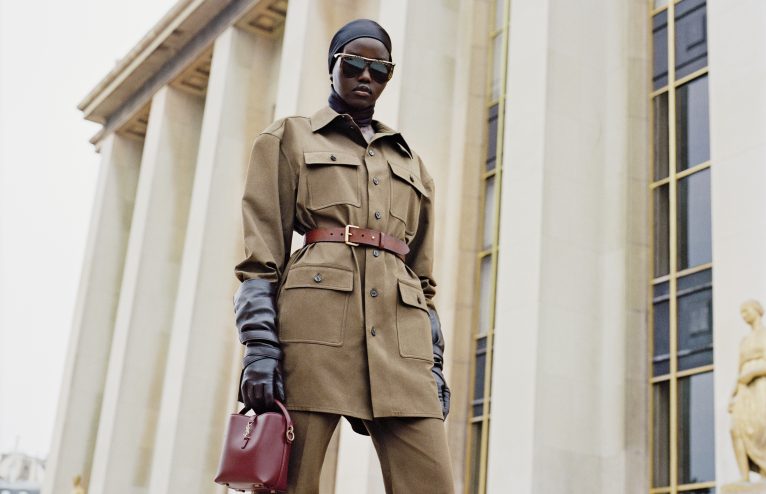


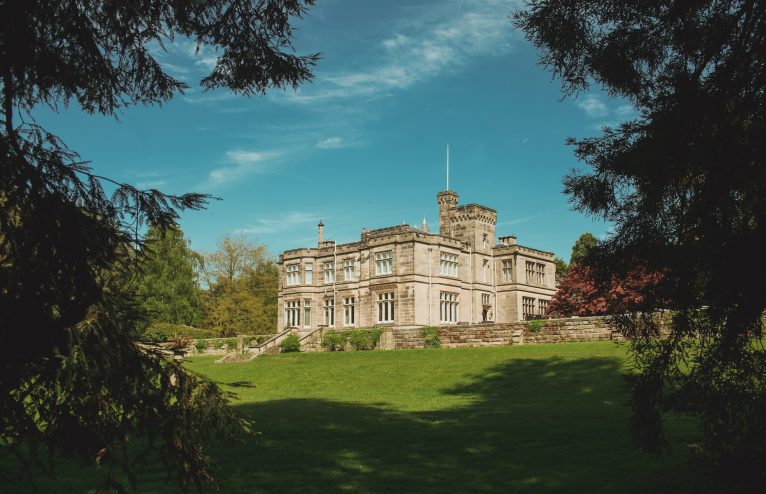




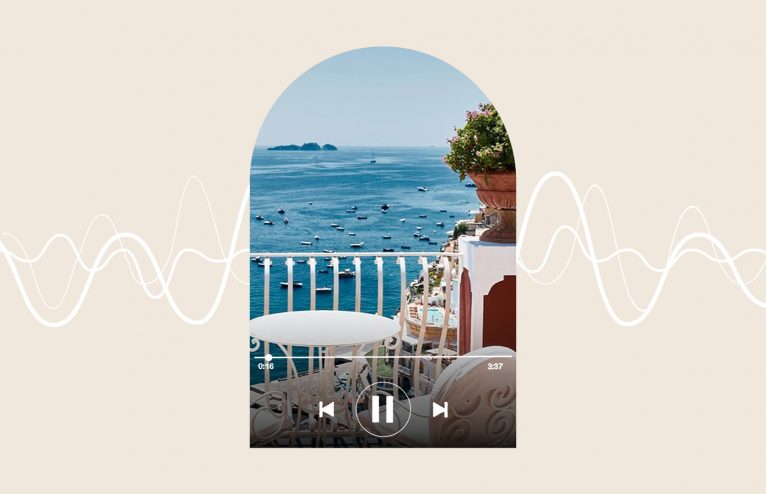



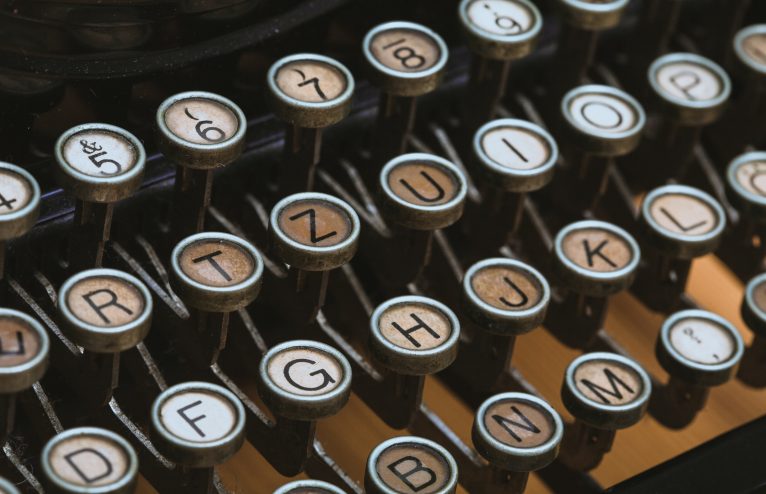
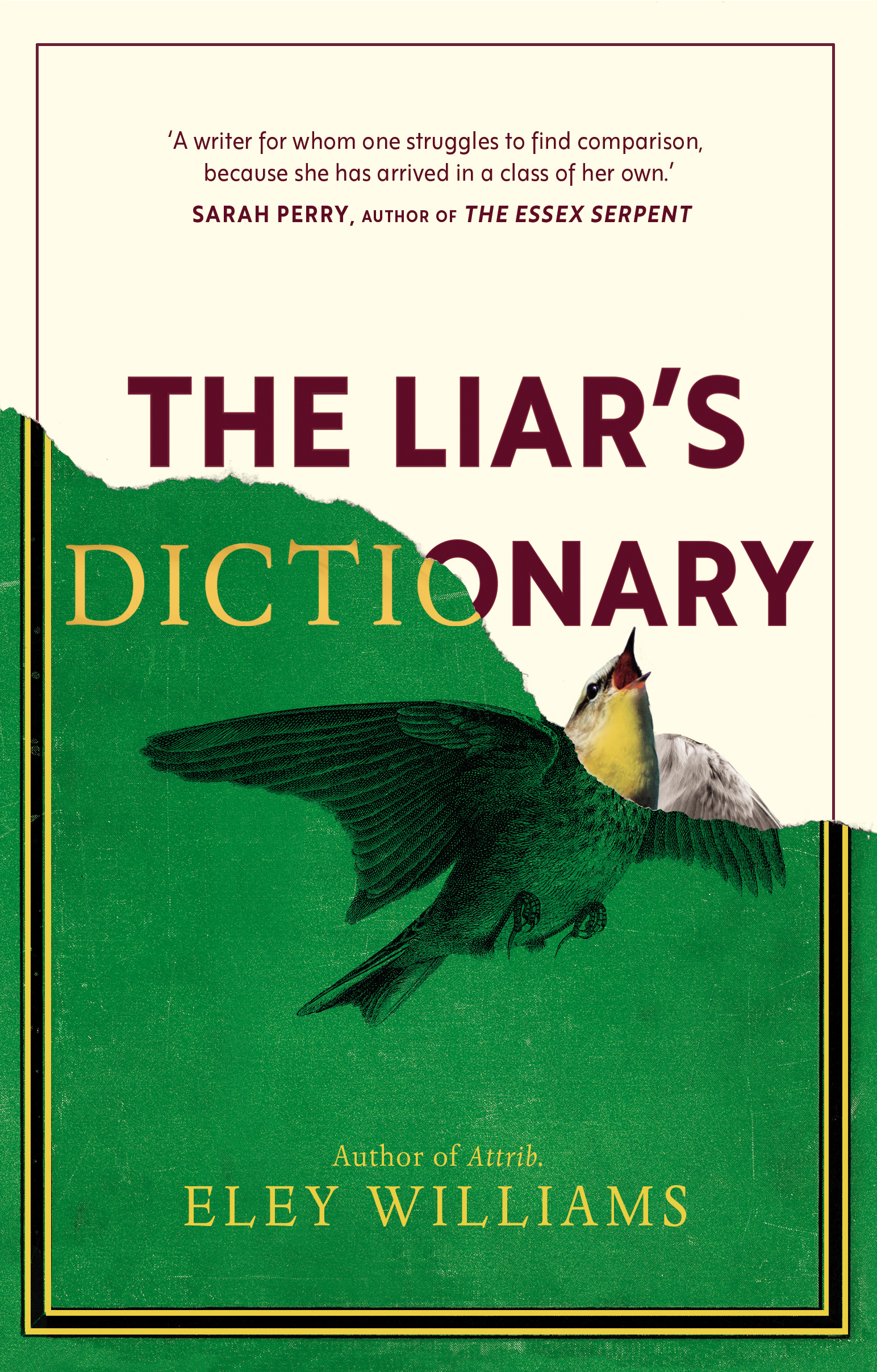
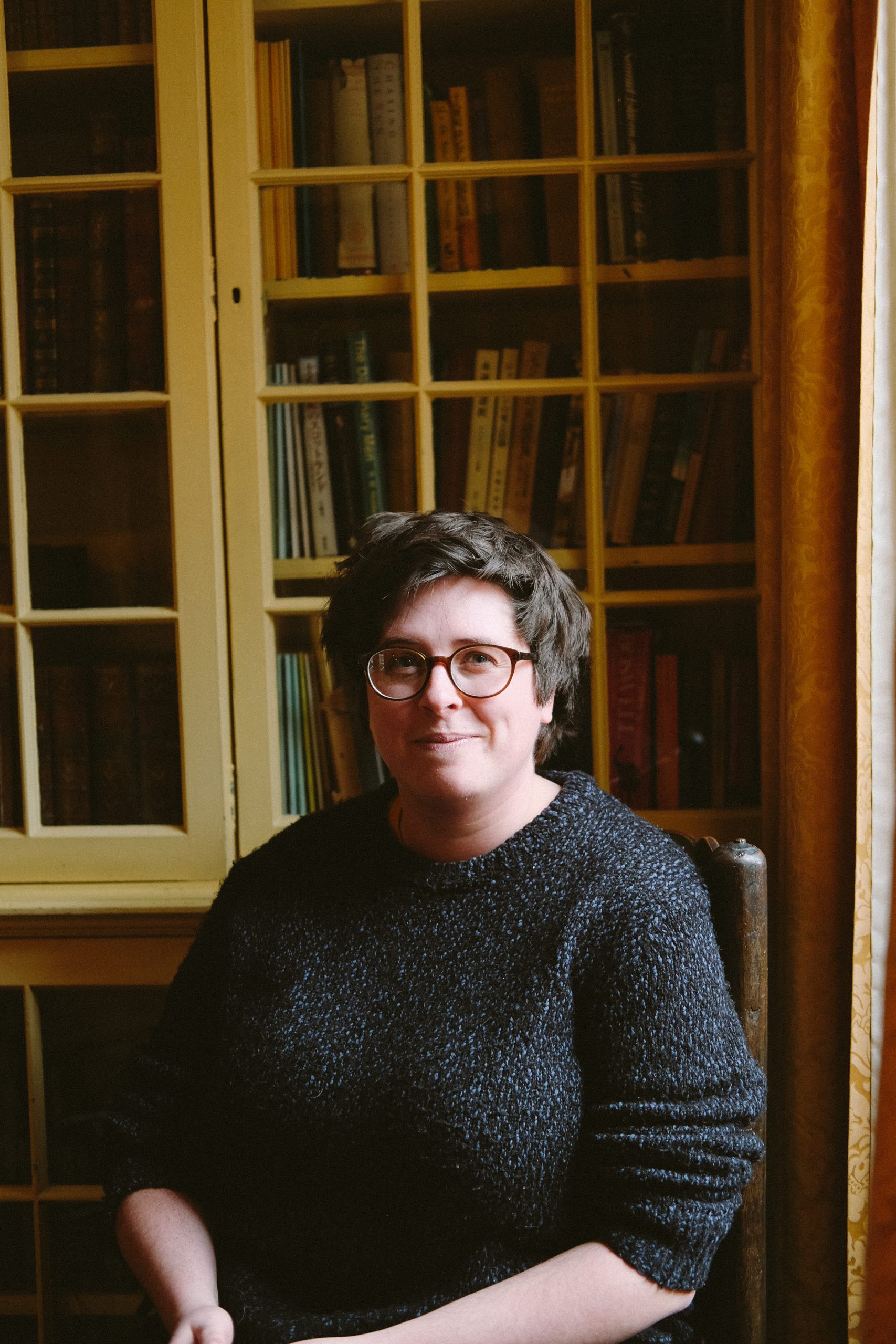


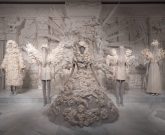

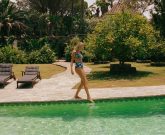
Any Questions or Tips to add?